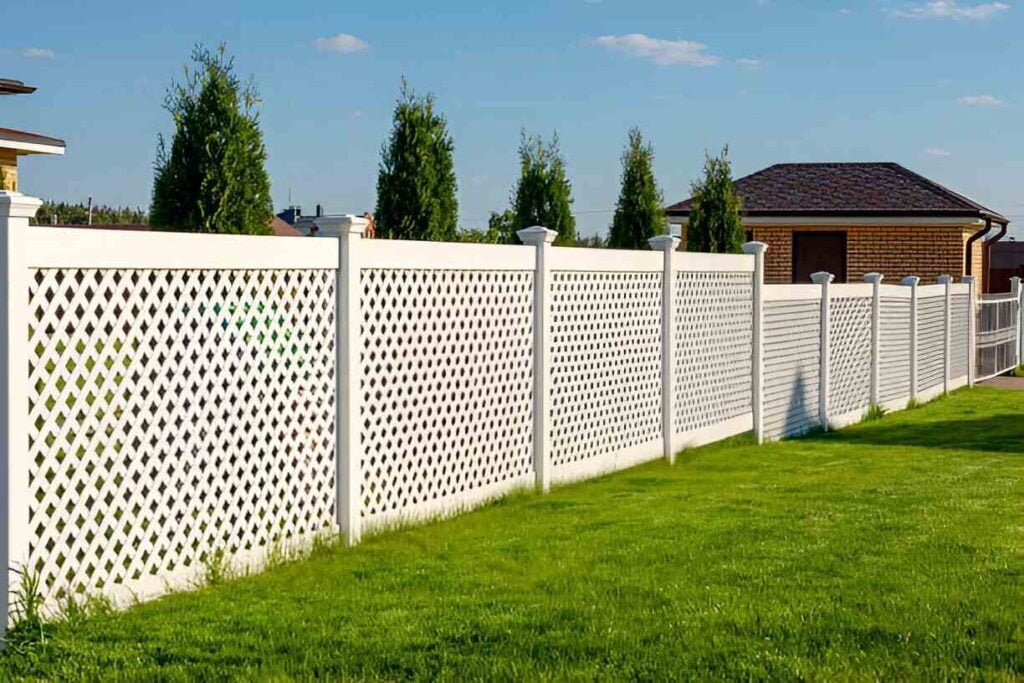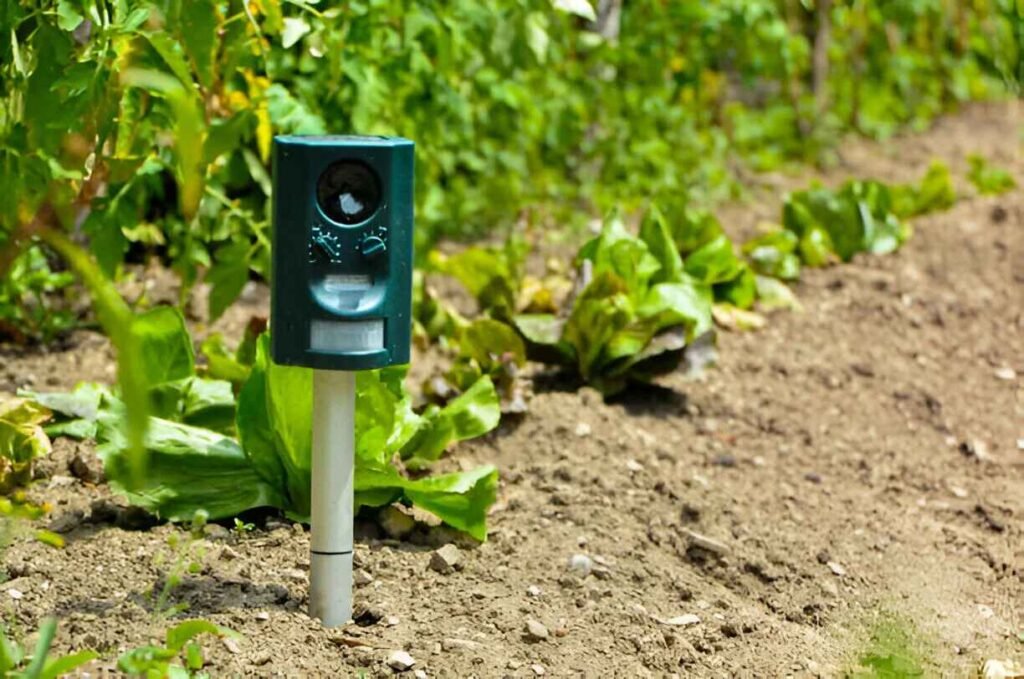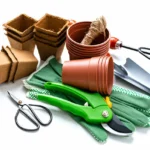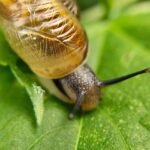Deer are herbivorous four-legged animals. You can see them around your garden if you live in the developed cities of America. They may appear innocently looking at you with their baby deer. You may give grass or vegetables to Maya, and they might leave, but they could come back again with their group. Imagine, you returned home in the evening after doing agricultural work in your green and fresh cabbage, tomato, and lettuce garden. After waking up in the morning, you looked through the window of your room and saw that your garden had been destroyed. You went to the garden and saw that these are none other than your well-known deer. What else can happen to a small gardener? You can’t kill deer according to US rules because there are fines and severe penalties! They will destroy your garden, and you will not do anything to protect your garden, it should not happen! I will introduce 12 ways to keep deer out of your garden. Whether you live in a rural area of America or not, deer can move into your backyard. Whether it’s America’s northeast, midwest, southwest, or any of their pastures, it can be any area.
My friend Nick sometimes takes night pictures of deer roaming around his garden.
Why do deer come near your backyard or garden?
Deer are herbivores. They may migrate to residential areas in search of food, especially in winter. More than 80% of America’s population lives in urban areas, and urbanization is developing and spreading rapidly, resulting in the loss of forested areas. A look at past years in America suggests that an average of 4-5 million acres of forest land is being lost every year. As a result, the tendency of wildlife to move towards residential areas and cities is increasing. They are also moving due to fear of deer poachers and fewer hunters in urban areas. During the winter season, when most of the forest is covered with snow, the amount of food for the deer decreases. They start wandering in the cities that have been built in the forested areas in search of food. They are attracted to the fresh and attractive vegetables in your garden during the winter season. They have strong scent power. Although the exact amount can vary, it is believed that due to factors such as wind direction and terrain, deer can detect scents from hundreds of yards away. Their strong sense of smell protects them from predators and helps to find foods in the forest.
Signs of deer activity
Deer have four hooved feet with which they move around your garden. The shape of the foot looks a bit like a broken heart. You will see their footprints. They have a habit of eating grasses, leaves, and vegetables without eating the whole parts. When they eat, they press hard with their front teeth and shake their heads to pull the food, causing the leaves to split from the middle. They can eat high branches of trees by placing two legs (the front ones) on the tree. As a result, you will see two footprints at the base of the tree. And when they roam from one place to another or in the forest in search of food, they move in groups. Their flocks can be large or small in number. You will know they are close to your garden when you see several of them walking in the same pattern.
You can save your vegetable garden from deer by applying common sense and a little intelligence. 12 ways keep deer out of your garden ,Take your time and read.

1. Long Fence
Deer are capable of long jumps using their four legs. Popular American deer such as white-tailed deer, mule deer, elk, and caribou can jump about 8 feet (2.4 meters) in height. You should fence at least 11-12 feet high. To keep deer out of your lawn or garden in the backyard, you can erect towering fences. Cedar can be used to create tall fences for your backyard garden and lawn. You can make it out of plastic netting or chicken coop netting. You can also make long fences with electric netting. When you fence with wire, zigzag the wires to the posts. However, if you have a vegetable garden of several acres, building such a tall wall can be costly. You can use a tall fence for your backyard garden, kitchen garden, and lawn. This will increase the beauty of the house, and privacy from the neighbors and animals like deer will not be able to set up dining in your garden.
2. Plants That Deer Avoid
Deer hunt for their food with a strong sense of smell. But they don’t move towards the plants they don’t like. You can plant such trees like lavender, thyme, oregano, rosemary, garlic, onions, hot peppers and Jerusalem artichoke around your garden as a result of which deer will not come around your garden. If the strong smell of these reaches the nose of the deer, they will be forced to move away from your garden area.
Plants with Poisonous Leaves
Plants with poisonous leaves are disliked by deer. Foxgloves, lily of the valley, monkshood, yew, and pokeweed plants have poisonous leaves. These plants are not eaten by deer, so you can plant them inside your garden or near fences to deter them from browsing.
Cut Leaves
An adult deer consumes 6-8 pints of food per day, which equates to about 1 ton per year. They mostly eat greens, vegetables, vine leaves, mushrooms, fruits, and young branches of trees, but the cut leaves are not eaten by deer. Cut leaves are difficult for them to chew and get stuck in their jaws, which is why they avoid these leaves. Lambs ear, wormwood, lavender, bee balm, Russian sage, ferns, barberry, fountain grass, lady’s mantle, Siberian bugloss, flowering tobacco, tuberous, heliotrope, yarrow, ageratum, and poppies are some cut leaves. Even if you don’t want to plant these plants in your garden, plant them to protect your other plants. But it is also true that decisions can change depending on deer’s diet, preferences, location, food availability, and their behavior. You can plant these shrubs and perennials in your area or near beds and a combination of other plants.
3. Deer Repellents
You can spray deer repellents to protect your garden area and vegetables from deer. However, this can be costly and require frequent watering of your tree or area. You can spray depending on the rain and fog in your area. This can be once a week or once every 3-4 days. You can get fox urine from Amazon, which is completely organic and will not harm your garden. Spraying this will remove the smell of urine in the deer’s nose, and they will try to get as far away from the predators as possible. You can collect manure from your neighborhood salon and mix it with your compost bin and spread it outside your crop fields. They won’t even come near your crops because of the smell of hair. You can find cougar urine coyotes at your area big box stores for around $10-20. Spray it around your garden stake fence, which studies show lasts for 25-30 days if your area doesn’t get rain or fog. You can make these repellents at home by spending some time. Mix 3 rotten eggs, 1 teaspoon of garlic powder, and 1 teaspoon of red pepper powder in a gallon of water. Apply this directly to your plants by filling your sprayer. When a deer enters your garden and bites one leaf, its stench will discourage them from biting another and they will decide to leave. This is really effective. There is a cow’s blood product called Plantskydd that works well to repel deer.
4. Place Stones Around
Native American deer do not like to graze on large rocks. This habit encourages them to find easy ways to move. And what one of the team does not do, the others refrain from doing it. Deer don’t want to climb up by dinging big stones, so you can use this opportunity with a little wisdom. Place stones of different sizes in your house or around the garden land where the deer access your garden. You can save the deer by applying this small trick to your vegetable garden.
5. Make Noise
Making noise doesn’t mean you go down to guard your garden or lawn area in the middle of the night and wake up at night. It’s completely unrealistic. But you can create noise to scare deer in a few ways.
Wind chimes:
Hang garden wind chimes that make a constant soft sound that can startle deer and cause them to leave the area.
Aluminum cans:
You can hang aluminum cans with ropes, which will move in the air and make a sound.
Air horn:
You can keep an air horn at home. When you notice their movement during the day or night, sound the air horn suddenly. The loud sound of an air horn will frighten them and they will leave your garden.
Radio or music:
Play radio or music at high volume near your garden or field, especially at night when deer are active. The sound of the radio or music system will make them think there is a crowd and avoid coming closer. But if they get used to any sound that you have in your garden, they will not be afraid of that sound in the future, so try to scare them by changing the sound frequently.
6. Building Hedges
Create thick hedges around your house, garden, or lawn. Deer are calm by nature. They like to avoid walking through thick bushes. Because in the thick bushes, the predatory animals are hiding. However, you can create a hedge around your house or field with thick trees. For this, you can use tall pine trees, hydrangea, holly trees, boxwood, red cedar, and hedge plants. But when you grow acres of fruit and vegetables, building your hedge can be costly and time-consuming, but it will protect your garden from deer browsing in the long run.

7. Keep a Dog
You can bring home a dog that likes to chase deer. Keep your vegetable garden or crop field dog-accessible. You should always make sure that dogs have access to your garden. As a result, whenever the deer is seen or heard during the day or night, the dog will rush to chase them. However, if you don’t plant plants in your garden that are harmful to dogs, the benefits can be counterproductive. The smell of dog urine will deter deer from entering your lawn or garden. If your dog is not in the habit of chasing deer, train it so that you can sleep peacefully. Deer chasing will be done by your pet dog.
8. Motion-Activated Device
A motion-activated device can be effective in keeping deer out of your garden or other areas where they are unwelcome. The devices emit high-frequency sound waves that are uncomfortable for deer and other animals, causing them to avoid the area. It remains active in your garden 24/7; any time they move within it’s range, it becomes active and makes noise and spreads water, scaring deer from the area. These allow you to easily connect any standard hose quick connection. Motion detection in a wide 25-30 feet area, width can cover up to about 900-1000 square feet which is really great. Some activated devices can startle deer with lights that cause them to flee the area.

9. Soap Splash
Be it your corn field or vegetable garden, starting from the entrance of the garden, you can sprinkle soapy soap pitch by pitch. You can use Irish spring soap. It has a trivia scent. You sprinkle pieces all over your garden by chopping them with a sharp knife. These soaps will smell for a long time. You can also pour pieces of soap into a bottle, and the bottle is plugged. Now hang the bottle on the steel or wooden pegs you place around your garden. When it rains, the scent of the soap will mix with the rainwater and spread into the garden, and because of the leak in the bottle, the scent will continue to spread even if it doesn’t rain. The scent of the soap will deter deer from entering your garden and lawn. This is very easy and saves a lot of money. It is also effective for mice and rats in your garden.
10. Fishing Wire
You can collect the fishing wire from your local hardware store. You need to put 8-10 feet high posts or stakes around your garden. When you plant the pole in the ground, firmly set it so that it does not move. Now you tie the fishing wires to the pole in a wrap style. When a line breaks due to buckling, you only need to fix one line, not the rest of the line. Once you have installed the wires, hold them by hand to see if the wires are loose, if they are loose, try tightening them. Tie each line tight and firm. Keep each wire gap at least 6-12 inches and try not to overcrowd. Deer will be deterred from entering your garden when they see from a distance that they cannot enter your garden, and the wires hit their mouths or bodies as they approach. This fishing wire system will save you thousands of dollars. Building a fence in your acre garden is a thousand-dollar investment that will add to the cost. This is a method that can save your effort, time, and money, which effectively deters the deer.
11. Learn About Local Deer
No matter what area of America you live and garden in, learn about local deer in your area. Be more active in your garden and deer repellent if you plant any crops and vegetables they have destroyed in previous years. You can also network and talk to gardeners in your neighborhood to learn about local deer. You can also contact gardeners’ organizations and local agricultural extension officers.
Find your local office: https://ucanr.edu/
County Extension Offices link: http://npic.orst.edu/pest/countyext.htm
12. Shine a Light on It
Deer like to roam at night. They have a habit of sneaking into your lawn or garden but rarely come out during the day or in bright light. Firstly, because of the fear of hunters, and secondly, because they are cautious animals. You put bright lights in your garden at night that will stay on all night. This will prevent deer from grazing in your lawn or backyard garden.
The 14 methods we have given may help you repel deer, but it is difficult to say which one will work for you. You have to figure it out yourself by applying these methods at different times. You can try several methods at once in your garden to prevent deer from entering. But you should do your own research and effort with your local deer to see if each works for you.
FAQ
Best Deer Deterrent?
= It’s hard to tell the truth. A deer is as calm as it is driven. They can easily become habituated to your fear or repellent methods and return again. For this, try to implement the methods in your garden gradually.
Does spraying deer repellents damage plants?
= No. Spraying your homemade repellents will not harm the plants, but some beneficial insects may also be repelled. Before buying the sprays, check the labels.










